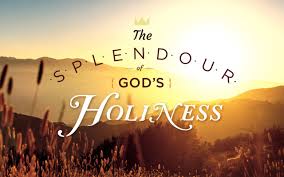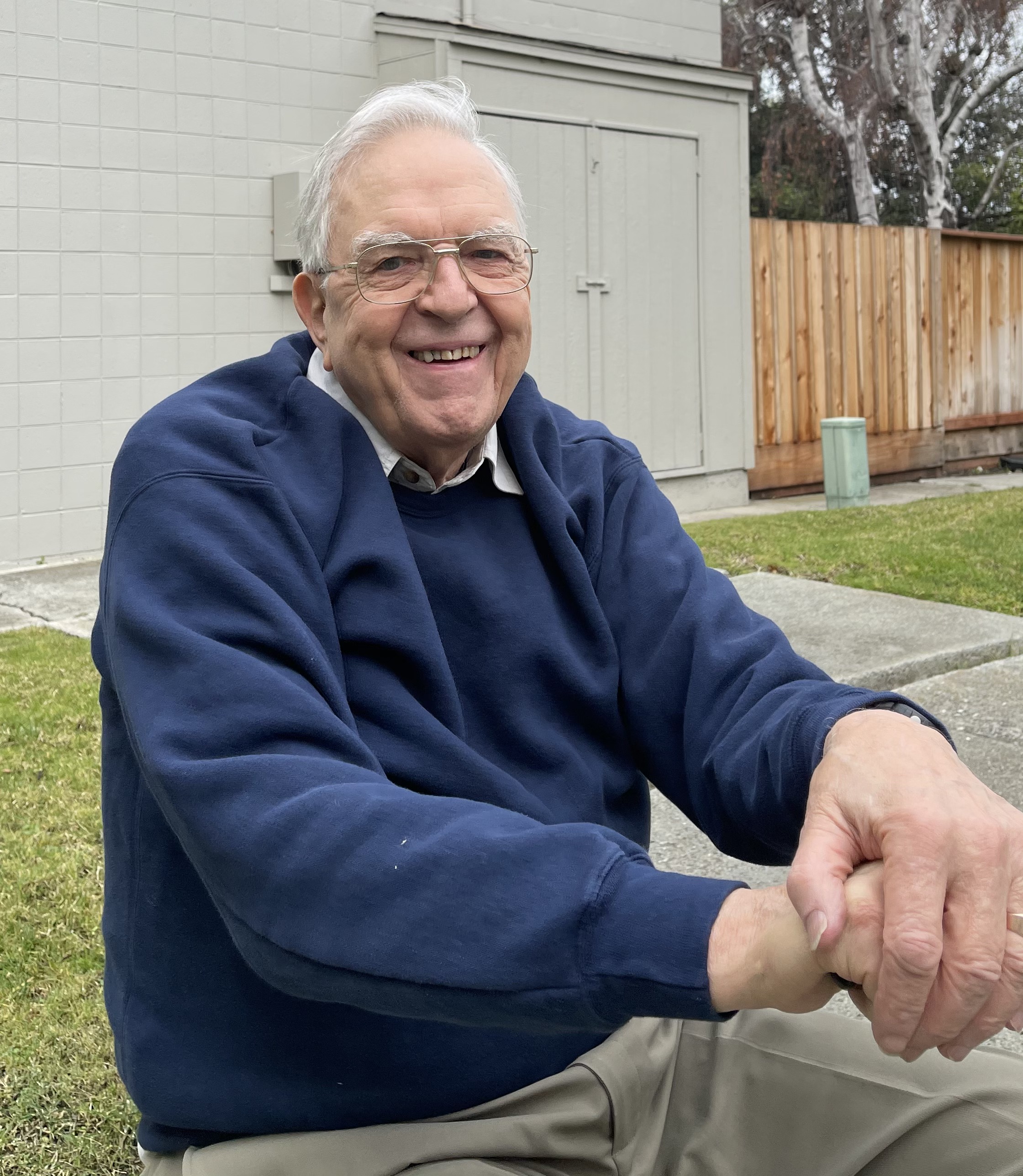
![]()
![]()
In March, 2020, a major discontinuity in history came down on the entire planet at about the time the seasonal flu virus descended on the Northern Hemisphere. Immediately every nation responded. Since there are presently 195 nations on our planet, usually at odds or at war with one another, only God could be responsible for this apparent change of dispensations. Very few people I know saw then, or now see, the hand of God in all these linked events. Yet terrible disasters have taken place in the course of history, which have caused many to doubt that God is good (if He exists at all). God governs the universe through a Divine Council.
Yes, God exists, He is good but we are not. We live in constant denial!
 One of my favorite all-time prayers is found in Philippians 4:6,7:
One of my favorite all-time prayers is found in Philippians 4:6,7:
"Do not be anxious about anything, but in every situation, by prayer and petition, with thanksgiving, present your requests to God. And the peace of God, which transcends all understanding, will guard your hearts and your minds in Christ Jesus."
This is a conditional prayer: I am asked to pray and petition God or I can't except relief from on high. But if I thoroughly air my fears with God I will receive peace, even if my immediate circumstances don't change. Jesus is far more caring than we suppose and He is involved in the details, and in the fine print.
"Cast all your anxiety on him because he cares for you." (1 Peter 5:7)
 Psychologists, Psychiatrists, Counselors, Parents, Grandparents, Friends may know all about comforting us in our afflictions but they themselves may not yet know Jesus. Often they are deeply anxious but can't tell anyone--even Jesus. Here is my short list of hidden doubts and fears I have seen:
Psychologists, Psychiatrists, Counselors, Parents, Grandparents, Friends may know all about comforting us in our afflictions but they themselves may not yet know Jesus. Often they are deeply anxious but can't tell anyone--even Jesus. Here is my short list of hidden doubts and fears I have seen:
Loss of a Linus Security Blanket--Fear of Not Measuring Up--Fear of Losing a Job--Fear of Failure--Fear of Rejection--Fear of Being Found Out--Fear of Being Betrayed--Fear of not Being Able to Perform--Fear of Criticism--Fear of Losing Out--Fear of Death
Nightmares--Bad Omens--Dread--Fear While in a Safe PlaceBy far our deepest fear is the fear of death!
 If God had good reason to lock us down, hide us behind useless masks, and force into "social-distancing" --could it be our Creator is unhappy with most of our disconnects in our families, our workplace--and most of all our apathy, indifference and disconnect from Him who IS Love?
If God had good reason to lock us down, hide us behind useless masks, and force into "social-distancing" --could it be our Creator is unhappy with most of our disconnects in our families, our workplace--and most of all our apathy, indifference and disconnect from Him who IS Love?
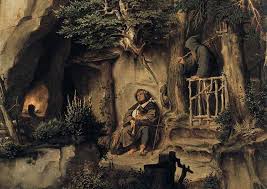 A John Eldredge recent newsletter reminds us that we humans are social creatures, only a few of us are successful hermits:
A John Eldredge recent newsletter reminds us that we humans are social creatures, only a few of us are successful hermits:
"If you want to get to know someone, you need to know their story. Their life is a story. It, too, has a past and a future. It, too, unfolds in a series of scenes over the course of time. Why is Grandfather so silent? Why does he drink too much? Well, let me tell you. There was a terrible battle in World War II, in the South Pacific, on an island called Okinawa. Tens of thousands of American men died or were wounded there; some of them were your grandfather's best friends. He was there, too, and saw things he has never been able to forget.
"But in order to make you understand," explained novelist Virginia Woolf, "to give you my life, I must tell you a story."
I expect all of us, at one time or another, in an attempt to understand our lives or discover what we ought to do, have gone to someone else with our stories. This is not merely the province of psychotherapists and priests, but of any good friend. "Tell me what happened. Tell me your story, and I'll try to help you make some sense of it."
We humans share these lingering questions: "Who am I really? Why am I here? Where will I find life? What does God want of me?" The answers to these questions seem to come only when we know the rest of the story.
As Neo said in The Matrix Reloaded, "I just wish I knew what I am supposed to do." If life is a story, what is the plot? What is your role to play? It would be good to know that, wouldn't it? What is this all about?
Introduction to Intimacy
Love and Relationships--Song of Solomon
It Takes Three to Tango
![]()
![]()
From Ray C. Stedman: There is a common proverb which says that only two things are sure in life: Death and taxes.
There are many who are trying to avoid paying their taxes, but no one gets out of facing the problem of death. Someone has well put it: "Dying my death is the one thing that no one else can do for me."
When Paul wrote his last letter to his son in the faith, Timothy, he was in the Mamertine prison in Rome and was awaiting his own death. As you read that second letter to Timothy you can see that he was quite aware that it was drawing close. He felt that he probably would not get out alive, and he didn't. But in the letter he speaks of
...the appearing of Jesus Christ our Savior who, has abolished death, and brought life and immortality to light through the gospel. (2 Timothy 1:10b RSV)
There is a phrase that ought to interest you, regardless of what your views may be on Christianity -- this phrase "he abolished death." That ought to grip every one of us.
Obviously Paul does not mean by this that Jesus Christ eliminated death, because it is still true that despite the great advancements of medical science during the last generation or so, the death rate remains what it has been for centuries -- a flat 100%. And that includes Christians along with everyone else. We all die. But Paul did mean something by the words "he abolished death." It is probably explained best in a passage in the second chapter of the letter to Hebrews
There the writer speaks of Jesus, who came, he says, to partake of the same nature that we have,
...that through death he might destroy him who has the power of death, that is, the devil, and deliver all those who through fear of death were subject to lifelong bondage. (Hebrews 2:14b-15 RSV)
It is in this way that Jesus abolishes death. He abolishes the fear of death, removing the sting from it, and thus making it harmless. I know there are many who disclaim any fear of death. There are many who boldly declare they are not afraid to die. But in listening to this through many years I have detected a rather hollow note about it. This week I picked up a magazine article and was struck by the opening sentence:
The ancient question of Job, "If a man die, shall he live again?" remains the fundamental question haunting all men today.
This fear of death is revealed in the way we try to hide the fact of death. We do not like the word. There is a daily newspaper published in our land which refuses to use the word "death" in its columns. We do not like to hear it mentioned. That is one difference between our generation and the previous one. In the 19th century the facts of conception, birth, and reproduction were regarded as subjects you never talked about in polite society, but the processes of death were quite acceptable. The 19th century writings were full of descriptions of death and essays about its meaning and effect. But in the 20th century we have reversed all this. We have an almost psychopathic preoccupation with the subjects of conception, birth, and reproduction and talk about them all the time, but the subject of death we seek to avoid, and we refer to it only in euphemisms.
For instance, a body is no longer called a corpse; today we refer to it as "the departed." We do not say that a person has died, but that he has "passed away," or "passed on." Coffins have become caskets, to hold a precious treasure. I was interested to note that in some of the newer mortuary ads, caskets are now becoming "couches," as though to drive away even further all sense of the macabre. I was almost horrified to read in a recent newspaper article of a man who proposed to build a drive-in viewing room, where "the departed" can be laid out for public viewing. You could simply drive by in your car and see these friends who are made up to resemble horizontal members of a cocktail party.
This grotesque pantomime is really due to a morbid fear of death which seeks to flee the tragic facts of our existence. Men are trying to forget that death awaits, that it stands at the end of every pathway and is inescapable, and that we must all be victims. You can see this trend toward escaping such thoughts in the modern attempts to rewrite nursery rhymes for children, to expunge from them all reference to violence and sudden death. That vicious and violence-filled nursery rhyme which many of us learned as children, Three Blind Mice, has now been done over and comes out this way:
Three kind mice, three kind mice,
They all ran after the farmer's wife,
Who cut them some cheese with a carving knife.
Did you ever hear such a tale in your life, as three kind mice?
In this trenchant phrase of a modern writer, "Death is muffled in illusions."
Dostoevski, the well-known Russian writer, who once faced a firing squad and was delivered at the last possible moment, said:
The certainty of inescapable death, and the uncertainty of what is to follow are the most dreadful anguish in the world.
There he placed his finger on the cause of our fear of death: "the uncertainty of what is to follow." We know not what, or where. And it is this unknown factor that makes us most afraid. Paul the Apostle says, "the sting of death is sin" (1 Corinthians 15:56a) -- the certainty of judgment. Remember how Shakespeare says in Hamlet, "Conscience doth make cowards of us all." Perhaps T. S. Eliot put it best when he said,
"It is not what we call death that we fear, but what, beyond death is not death. That we fear, we fear."
The passage in Hebrews says that the fear of death produces lifelong bondage. I suggest that this is a true statement and that it is demonstrable in our lives. It limits us, this fear of death. It ties us up. It creates what, in modern parlance, are called "hang-ups," and these are some of them:
First, this fear of death drives us. It hurries us at our work. We feel that we must make time count. We are aware of the passing of the years and are afraid that we will waste our opportunities, that we will lose out on the possibilities which are before us. Therefore we must grasp every moment to fulfill it. We dare not stop, dare not rest, but are constantly driven, driven, driven, because we know the shortness of our time.
Then, fear of death makes us worry. Death threatens us on every side. It is what makes us install seat belts in our automobiles. We are constantly pursued by those who wish to sell us insurance against that day when ultimately we must die. It creates concern over our diet and causes us to eat the most unpalatable of foods for weeks at a time, because we are afraid. It is what makes us check out our pains and aches with our doctor. It sends us to him for frequent examinations, lest this physical house in which we live begin to crumble and we find ourselves facing the king of terrors.
The fear of death sobers us. How many of us have been aware of times when, even in the moment of hilarity, of laughter and joy, we have been conscious that a sigh was not very far from a smile. We have been afraid to enjoy things because we have felt they would soon disappear, and if we gave ourselves too fully to them we would feel sorrow when they were taken away. It hits us too hard. Many are afraid to love because we feel we may lose what we love and our hearts will be made sad if we allow ourselves to become involved. So the fear of death produces a reserve, a coldness, a suspicion, a withdrawing from life on the part of many.
Also, this fear haunts us. Suddenly it impinges on our thoughts when we least expect it. It frightens us in our dreams, and makes us restless. We are afraid to be alone. We don't like silence, but must have a radio or television drumming away in our ears. We constantly demand something to occupy our attention. All this is testimony to an unspoken and unacknowledged fear of death which pervades our society today.
If that is true (and I don't see how anyone can challenge it), it ought to make us receptive to the great message of Easter. What is it all about?
Well, it is a declaration that a breakthrough has occurred, that Jesus Christ has broken through the death barrier and has found a solution to this vexatious problem which hangs like a cloud of doom over every one of us. Somehow he has solved the great Gordian riddle of the ages. He broke through, he rose from the dead. And as a result he offers to break the power of death, and the fear of it, for any individual who comes to know him.
He does this by two means which the Bible declares to us: First, he removes the fear of judgment by the forgiveness of sin. There is nothing more fundamental to Christianity than that. In the mystery of the death and resurrection of Jesus Christ, God was doing something that we men do not fully understand but which nevertheless God declares to be true. He was accomplishing the solution of the basic problem of human evil, which dogs us everywhere we go, the best as well as the worst, the righteous and respectable as well as the evil and the outcast. God solved this basic problem in the cross of Christ. He laid our sins upon him. I don't know how it happened. I don't know anyone else who fully understands it. It is one of those great mysteries which God declares and which the mind of man cannot fathom or follow. But God has done it, and in Christ men are forgiven.
The wonderful thing is that when forgiveness is once received there is a reaction of joy and gladness, and a sense of the lifting of a load, which can never be forgotten. Men do not call on anyone else for forgiveness of sins. They do not ask, "Oh, John F. Kennedy, forgive my sins," or "Winston Churchill, forgive my sins." But for centuries men have been crying out, "Jesus Christ, forgive me," and they have risen with a sense of guilt removed and of burden rolled away. And, if the burden of sin is taken away, then the fear of judgment is gone. This is the glorious proclamation -- that death does not suddenly introduce us to a piece-meal examination in which we must give an answer for all we have done, but in Christ we are free from condemnation. This is the great declaration. It is the sure word of the Scripture: Any who believe in him have passed from death unto life and shall not come into condemnation...
The second thing Jesus does is to promise us life with him. He said, "Because I live, you too shall live," (John 14:19b). He demonstrated his ability to fulfill that promise by rising from the dead himself. To me that is a most impressive fact. It is what convinces me that I can trust what Jesus says, as opposed to what anyone else is saying in this day and age.
I have read the writings of philosophers, thinkers, and world leaders of our time, and, in many ways, I am impressed by their ability to state their case with logic and clarity. I find that some of them are experts at so presenting their cause that they can make black look like white and white look like black. To read their arguments is to be impressed. But I have long ago learned that, if what they are saying contradicts what Jesus is saying, then I cannot trust them. I have learned that I must trust, and only shall trust, the one who has demonstrated a knowledge of life surpassing all others, who has positively manifested his ability to solve the most perplexing problem before men -- that of death. He has broken through the death barrier.
I don't know anyone else with credentials like that. If you want me to believe someone, get him to do that and then I'll believe him. But, until then, I will trust the One who has manifested an understanding of the basic solution to the problems of life and death.
This is what changes the whole outlook on death. This is why the Apostle Paul, and those early Christians, as they contemplated their own approaching death, did not feel terror in their hearts. They had no fear of this thing, but could say, as Paul said,
"O death, where is your sting. O grave, where is your victory?" (1 Corinthians 15:55)
As a pastor I have stood many times beside a grave and noted the impact death has had upon those who are left behind. I have seen people break up and emotionally fall apart at a graveside, torn by the awful sense of separation from their loved ones. It is a harrowing experience to watch it. But I have often seen Christians facing death, have seen the light in their faces that nothing could rival, have felt the steadiness of their spirit, the sturdiness of their faith, their quiet acceptance of God's will, and even a joy that is manifest in the midst of their sorrow.
I don't know how to explain it except by what is involved in this story of Jesus. Death is no longer fearsome for the believer. Death in Christ means to be absent from the body and present with the Lord. "To depart and be with Christ," Paul says, "is far better," (Philippians 1:23). He has taken away the sting of death and removed its fear and terror. So death becomes but an incident, a moment of transition from this life to the next, and then the experience of joy and blessing beyond expression.
I have here a letter which was written by a young soldier about to die. During World War II he was captured and imprisoned by the Nazis and was sentenced to be executed. Writing from his prison in Hamburg on the day of his execution, this is what he said to his parents:
When this letter comes to your hands I shall no longer be among the living. The thing that has occupied our thoughts constantly for many months, never leaving them free, is now about to happen. If you ask me what state I am in I can only answer: I am, first, in a joyous mood and, second, filled with a great anticipation.
As regards the first feeling, today means the end of all suffering and all earthly sorrow for me. "God shall wipe away every tear from their eyes." What consolation, what marvelous strength emanates from faith in Christ who has preceded us in death. Everything that till now I have done, struggled for, and accomplished, has at bottom been directed to this one goal, whose barrier I shall penetrate today. "Eye hath not seen nor ear heard, neither has entered into the heart of man the things which God has prepared for them that love him."
For me, believing will become seeing; hope will become possession, and I shall forever share in Him who is love. Should I not, then, be filled with anticipation? What is it all going to be like? The things that up to this time I have been permitted to preach about, I shall now see. There will be no more secrets nor tormenting puzzles. Today is the great day on which I return to the home of my Father. How could I fail to be excited and full of anticipation? Then I shall see once more all those who have been near and dear to me here on earth.
And so, until we meet again above, in the presence of the Father of light.
Your joyful, Herman.
That is authentic Christian confidence in the face of death, born out of the great fact we celebrate today -- that Jesus Christ rose from the dead. It is a fact enmeshed in history, attested to by competent eye witnesses who again and again recorded objectively what they saw. It has been confirmed in the experience of thousands and thousands who through the centuries have accepted the offer of God and have found this risen Lord -- found him to be not only the answer to death but the answer to life as well. For he not only offers to remove the fear of death but he offers also to supply the strength that life demands. He who died for us did so in order that he might give himself to us. He died for us that he might live in us. It is here that Christians find the supply they need to face the pressures, problems, and dangers that life sets before them. Christ's love is available. Christ's patience is available, his power, his wisdom, his strength, his longsuffering, his compassion, his courage -- all these are available to those who know him...
God's offer stands available today. "If you confess with your mouth Jesus as Lord," he says, "and believe in your heart that God has raised him from the dead, you will be saved." There will take place in your life the simple transaction by which Jesus Christ comes in to live within you and to give you a hope that surpasses life, which goes beyond the grave, removing all its fear and terrors and making you not only able to face death but able also to face life.
Isn't that worth something? There is nothing like it anywhere. No product offered anywhere else can equal it. There is nothing more fundamental to life, nothing more basic, more elementary than this.
That is why today we take great joy in declaring to you what we have found in Jesus Christ, risen from the dead, Lord of lords, before whom eventually every knee shall bow, and whom every tongue shall proclaim as Lord to the glory of God the Father. He has solved the problem of history and the problem of death. And he is able to meet the individual need of every life. (The Death of Death)

![]()
![]()
Times and Seasons
The Near Future of Planet Earth
Accidents and Disasters, does God Care?
The Root Cause of Violence in Society
No Such Thing as Chance
![]()
![]()

![]()
![]()
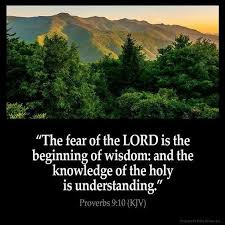
“Perfect Love casts out all fear” (1 John 4:18)
In this is love perfected with us, that we may have confidence in the day of judgment, because as he is so are we in this world. (1 John 4:17)
"Confidence in the day of judgment": I doubt if there is a single person who does not realize, deep in his heart, that at the end of life there is an accounting. We must stand before the Lord, our Maker. It does not make any difference whether we are Christians or non-Christians. Our relationship with him may be different, but we must all come face to face with the Lord himself. He stands at the end of every path we may be taking today, and we must come at last to a day of accounting.
This is what Paul declared to the Athenian intellectuals on Mars Hill, "God has fixed a day in which he will judge the world in righteousness by that man whom he has appointed, and of this he has given assurance to all men by raising him from the dead," Acts 17:31).
That day lies ahead of us all. But when we stop to think about it we cannot help but ask ourselves, how am I going to do in that day? Can I pass that unconscious test that Jesus speaks of in Matthew 25, when he stands to judge the nations and divides the sheep on his right hand, the goats on his left? He will say to the people on his right, "Blessed are you of my Father; enter into the inheritance which the Father has prepared for you from the foundation of the earth," ( Matthew 25:34, ff). Why? "Because when I was naked and hungry and in prison and sick, you visited me, you helped me, you did something for me, you ministered to my need." Do you remember their reaction? "Lord, when did this happen? We weren't aware of it. We don't remember seeing you, we don't remember doing these things."
Again, he says to those on his left, "Depart into everlasting judgment," (Matthew 25:41, ff).
Why? "Because when you saw me weak and sick and in prison, you did nothing about it. You passed on your way, you showed no concern, you displayed no compassion, you did nothing." Again, remember that they say, with surprise, "Why, Lord, when did this happen? We don't have any memory of it. We don't recall it. If we had seen you we'd have done something, but we don't even remember seeing you."
Of course the searching revelation of that passage is that this is now happening all about us. Christ is in all these situations of need, and when we are confronted with someone who has a need it is Jesus who is asking our help. Our reaction to that person is our reaction to him. There is no escaping that in this passage. We may quarrel about much else in the passage, but this is clearly what he means by this story. Therefore is there not a question in each heart now, "When I stand before him like that, will I pass the test? Am I recognizing these situations now?"
Notice that John says it is love "perfected" which gives us confidence in the day of judgment. Love which is perfected is love that is made visible in deeds.
We saw that in Verse 12: "If we love one another," he says, "his love is perfected in us." It expresses itself in deeds, as he said in Chapter 3, Verse 18, "Little children, let us not love in word or speech but in deed and in truth." Love, even God's love, can never find its end, its perfection, until it is expressed in a deed or word or compassionate act. Therefore, note what John is saying: If you want to have boldness, confidence, in the day of judgment, then let love express itself, let it be perfected because it is when love is perfected with us that we have confidence for the day of judgment. Will you pass that test? You will if you understand what John means by this wonderful little phrase that he inserts at the end, "because as he is so are we in this world." That is one of the most profound statements in the Word of God -- yet it is couched in the simplest of language -- every word is a monosyllable. "As he is so are we in this world." What does that mean to you? Do you understand that? That simply means that as Christ is now, invisibly, we are, in this world, visibly. In other words, it is a reference to what we have been seeing all along. The secret of Christian living is not in our feeble efforts to try to do something in imitation of him or in response to his command; it is to recognize his willingness to do all that he demands in us, to live in us. It is Christ living in me.
It is what Paul says, "Not I any longer trying my best to imitate and obey the commands of Jesus Christ, but my trustful, quiet, confident expectation that he will fulfill his promise to live in me, and to do through me all that he wants done." That is what this means. All that he is, is continuously available to me. Therefore whatever I do, it is he that is doing it. Now you can see what confidence this gives in the day of judgment. If he is going to look at my life and see the activity of himself in me, then he will not deny himself at the day of judgment. I know that what I am doing, if it stems from this source, is wholly acceptable unto him, and therefore I can have confidence in his presence.
Hebrews Chapter 2 is all about the identification Jesus has made with everyone whoever lived, including you and me.
The New Testament Letter to The Hebrews is my favorite, and my 12 audio messages are on line.1 Therefore we must give the more earnest heed to the things we have heard, lest we drift away. 2 For if the word spoken through angels proved steadfast, and every transgression and disobedience received a just reward, 3 how shall we escape if we neglect so great a salvation, which at the first began to be spoken by the Lord, and was confirmed to us by those who heard Him, 4 God also bearing witness both with signs and wonders, with various miracles, and gifts of the Holy Spirit, according to His own will?
5 For He has not put the world to come, of which we speak, in subjection to angels. 6 But one testified in a certain place, saying: “What is man that You are mindful of him, Or the son of man that You take care of him? 7 You have made him a little lower than the angels; You have crowned him with glory and honor, And set him over the works of Your hands.
8 You have put all things in subjection under his feet.” For in that He put all in subjection under him, He left nothing that is not put under him. But now we do not yet see all things put under him. 9 But we see Jesus, who was made a little lower than the angels, for the suffering of death crowned with glory and honor, that He, by the grace of God, might taste death for everyone. 10 For it was fitting for Him, for whom are all things and by whom are all things, in bringing many sons to glory, to make the captain of their salvation perfect through sufferings.
11 For both He who sanctifies (makes holy, or whole) and those who are being sanctified a real of one (body), for which reason He is not ashamed to call them brethren, 12 saying: “I will declare Your name to My brethren; In the midst of the assembly I will sing praise to You.” 13 And again: “I will put My trust in Him.” And again: “Here am I and the children whom God has given Me.”
14 Inasmuch then as the children have partaken of flesh and blood, He Himself likewise shared in the same, that through death He might destroy him who had the power of death, that is, the devil, 15 and release those who through fear of death were all their lifetime subject to bondage. 16 For indeed He does not give aid to angels, but He does give aid to the seed of Abraham.
17 Therefore, in all things He had to be made like His brethren, that He might be a merciful and faithful High Priest in things pertaining to God, to make propitiation for the sins of the people. 18 For in that He Himself has suffered, being tempted, He is able to aid those who are tempted. (Hebrews 2)
"...Jesus has become a surety of a better covenant.
Also there were many priests, because they were prevented by death from continuing.
But He, because He continues forever, has an unchangeable priesthood.
Therefore He is also able to save to the uttermost those who come to God through Him,
since He always lives to make intercession for them.
For such a High Priest was fitting for us, who is holy, harmless, undefiled, separate from sinners,
and has become higher than the heavens; who does not need daily, as those high priests, to offer up sacrifices,
first for His own sins and then for the people’s,
for this He did once for all when He offered up Himself." (Hebrews 7:25-27)
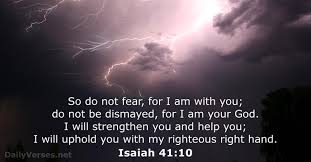 From Ray Stedman:
The Qualifications of a Priest (5:1-14) Hebrews
Chapter 5 continues the priestly theme by looking first, in verses 1-4, at the necessary qualifications to serve as a priest. They are fourfold:
From Ray Stedman:
The Qualifications of a Priest (5:1-14) Hebrews
Chapter 5 continues the priestly theme by looking first, in verses 1-4, at the necessary qualifications to serve as a priest. They are fourfold: All these Aaron fulfilled, as did, with varying degrees of accomplishment, many of his successors in the priestly office. We tend to think of the Levitical priests as engaged, only in rituals and sacrifices which were often virtually meaningless to the people. But if we read Leviticus and Deuteronomy carefully, we will see that such priests served in the place of modern psychologists and psychiatrists today. In explaining to the people the purpose of each offering, they would be dealing with problems of fear, insecurity, anxiety, guilt and shame. Thus they fulfilled an extremely important role in the nation's life.
The Credentials of Jesus
The writer now shows that Jesus, as a high priest, fulfills each of those qualifications, though he is of a different order than that of Aaron. The fourth qualification is mentioned first---the need to be appointed by God. That divine appointment was found in the words of Psalm 2, quoted once before in 1:5, You are my Son; today I have become your Father. This precisely identifies the one who will be made a priest (my Son), and is immediately linked with the words of Psalm 110:4, You are a priest forever, in the order of Melchizedek. This first of eight mentions of Melchizedek in Hebrews stresses the right of Jesus to serve because his appointment came directly from God and is confirmed by Psalms 2 and 110.
The second qualification (to offer gifts and sacrifices for sins) is not mentioned of Jesus here, possibly because it has been described already in 2:17. This will be dealt with extensively in chapters 8 and 9, particularly in 8:3. That Jesus met this credential in full is the major theme of Hebrews and is, therefore, taken for granted in this demonstration of his priestly qualifications.
But Jesus' fulfillment of the third qualification (to feel his own weakness and sins) is described in the words of verses 7-8. These strange verses explain how a sinless person could nevertheless feel his own weakness and sins. The major commentators agree that they describe the experience of Jesus in the dark shadows of Gethsemane. There---with only Peter, James and John nearby---he experienced a protracted period of excruciating torment of spirit which found expression in groanings ("If it be possible, Father, let this cup pass") and streaming tears, and ended in a terrible sweat, almost like blood.
There is a great mystery here. Jesus seems to face the experience with puzzlement and deep unrest of heart. For the first time in his ministry, he appeals to his own disciples for help, asking them to watch and pray for him. He confesses being deeply troubled in his spirit. Each of his three prayers questions the necessity for this experience and each is addressed to the one who could save him from death. Luke tells us that before the third prayer an angel was sent to strengthen him. Perhaps this is what the words of 5:7 refer to, he was heard because of his reverent submission. His cry to the Father was one of such desperate need that the Father answered by strengthening him through an angel. But when the angel had finished, the third and most terrible experience began.
 The author implies that Jesus faced the emotional misery which sin produces: its shame, guilt and despair. He felt the iron bands of sin's enslaving power. He was oppressed by a sense of hopelessness, total discouragement and utter defeat. He is anticipating the moment on the cross when he would be forsaken of the Father, since he would then be bearing the sin of the world as though it were his own. The very thought of it crushed his heart as in a winepress. No sinner on earth has ever felt the stain and shame of sin as he did. He understood exactly the same feeling we have (in much lesser degree) when we are angry with ourselves and so filled with shame and self-loathing that we cannot believe that God can do anything but hate us for our evil. Jesus knows what that is like. He went the whole way and took the full brunt. We will never pass through a Gethsemane as torturous as he did. He saw our sins as his own, and thus fulfilled beyond any other priest's experience the ability to deal gently with other's sins since he was so fully aware of the sense of personal defilement sin leaves.
This also explains the unusual words of 5:8, Although he was a son, he learned obedience from what he suffered. There in Gethsemane he learned how it feels to obey when such obedience only promises further pain. He could and did add to his prayers, "yet not my will, but yours be done." Thus Jesus learned obedience when every fiber of his being longed to escape. He had gladly been obedient to the Father all his life. In Gethsemane it was hard, excruciatingly hard, for him to accept God's will, just as it often seems hard to us to obey it. But this is because we are impure, not pure. Nevertheless, even though he was a son who loved to obey his Father, yet he learned obedience the hard way through his experience in Gethsemane.
Verses 9-10 take us to the cross. Having learned obedience in Gethsemane, Jesus is now perfectly qualified to become at once the sin offering and the high priest who offers it.
The author implies that Jesus faced the emotional misery which sin produces: its shame, guilt and despair. He felt the iron bands of sin's enslaving power. He was oppressed by a sense of hopelessness, total discouragement and utter defeat. He is anticipating the moment on the cross when he would be forsaken of the Father, since he would then be bearing the sin of the world as though it were his own. The very thought of it crushed his heart as in a winepress. No sinner on earth has ever felt the stain and shame of sin as he did. He understood exactly the same feeling we have (in much lesser degree) when we are angry with ourselves and so filled with shame and self-loathing that we cannot believe that God can do anything but hate us for our evil. Jesus knows what that is like. He went the whole way and took the full brunt. We will never pass through a Gethsemane as torturous as he did. He saw our sins as his own, and thus fulfilled beyond any other priest's experience the ability to deal gently with other's sins since he was so fully aware of the sense of personal defilement sin leaves.
This also explains the unusual words of 5:8, Although he was a son, he learned obedience from what he suffered. There in Gethsemane he learned how it feels to obey when such obedience only promises further pain. He could and did add to his prayers, "yet not my will, but yours be done." Thus Jesus learned obedience when every fiber of his being longed to escape. He had gladly been obedient to the Father all his life. In Gethsemane it was hard, excruciatingly hard, for him to accept God's will, just as it often seems hard to us to obey it. But this is because we are impure, not pure. Nevertheless, even though he was a son who loved to obey his Father, yet he learned obedience the hard way through his experience in Gethsemane.
Verses 9-10 take us to the cross. Having learned obedience in Gethsemane, Jesus is now perfectly qualified to become at once the sin offering and the high priest who offers it.
This anticipates the clause of 9:14, "through the eternal Spirit [he] offered himself unblemished to God." This perfect sacrifice, offered by the perfect priest, entirely supersedes the Aaronic priesthood and is again designated by God as of the order of Melchizedek. The phrase appears five times in Hebrews and becomes the subject of the epistle from 5:6 to 7:28. It is the Melchizedek priesthood that is described by 2:18: "Because he himself suffered when he was tempted, he is able to help those who are being tempted." In view of this help so easily available, why do we insist so strenuously on obtaining only human help? The mutual assistance of others like ourselves is scripturally valid and often helpful, but it was never intended to replace the help available from our great "Melchizedek."
Let us go boldly and much more frequently to our high priest who sits on the throne of grace, ready and able to help.
Come, ye disconsolate, where'er ye languish, Come to the mercy seat, fervently kneel. Here bring your wounded heart, here tell your anguish, Earth has no sorrows that heaven cannot heal!
Intercessors
Upper Room Prayer
In The Cross
Six Hours of Eternity on the Cross

![]()
![]()
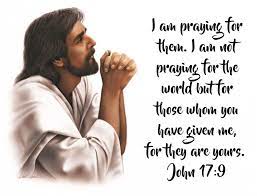
Jesus spoke these words, lifted up His eyes to heaven, and said:
“Father, the hour has come. Glorify Your Son, that Your Son also may glorify You,
“as You have given Him authority over all flesh, that He should give eternal life to as many as You have given Him.
“And this is eternal life, that they may know You, the only true God, and Jesus Christ whom You have sent.
I have glorified You on the earth. I have finished the work which You have given Me to do.
“And now, O Father, glorify Me together with Yourself, with the glory which I had with You before the world was.
“I have manifested Your name to the men whom You have given Me out of the world.
They were Yours, You gave them to Me, and they have kept Your word.
“Now they have known that all things which You have given Me are from You.
“For I have given to them the words which You have given Me;
and they have received them, and have known surely that I came forth from You;
and they have believed that You sent Me.
“I pray for them. I do not pray for the world but for those whom You have given Me, for they are Yours.
“And all Mine are Yours, and Yours are Mine, and I am glorified in them.
“Now I am no longer in the world, but these are in the world, and I come to You. Holy Father,
keep through Your name those whom You have given Me, that they may be one as We are.
“While I was with them in the world, I kept them in Your name.
Those whom You gave Me I have kept;
and none of them is lost except the son of perdition, that the Scripture might be fulfilled.
“But now I come to You, and these things I speak in the world, that they may have My joy fulfilled in themselves.
“I have given them Your word; and the world has hated them because they are not of the world, just as I am not of the world.
“I do not pray that You should take them out of the world, but that You should keep them from the evil one.
“They are not of the world, just as I am not of the world.
“Sanctify them by Your truth. Your word is truth.
“As You sent Me into the world, I also have sent them into the world.
“And for their sakes I sanctify Myself, that they also may be sanctified by the truth.
“I do not pray for these alone, but also for those who will believe in Me through their word;
“that they all may be one, as You, Father, are in Me, and I in You;
"that they also may be one in Us, that the world may believe that You sent Me.
“And the glory which You gave Me I have given them, that they may be one just as We are one:
“I in them, and You in Me; that they may be made perfect in one,
and that the world may know that You have sent Me, and have loved them as You have loved Me.
“Father, I desire that they also whom You gave Me may be with Me where I am,
that they may behold My glory which You have given Me; for You loved Me before the foundation of the world.
“O righteous Father! The world has not known You, but I have known You; and these have known that You sent Me.
“And I have declared to them Your name, and will declare it, that the love with which You loved Me may be in them, and I in them.”
